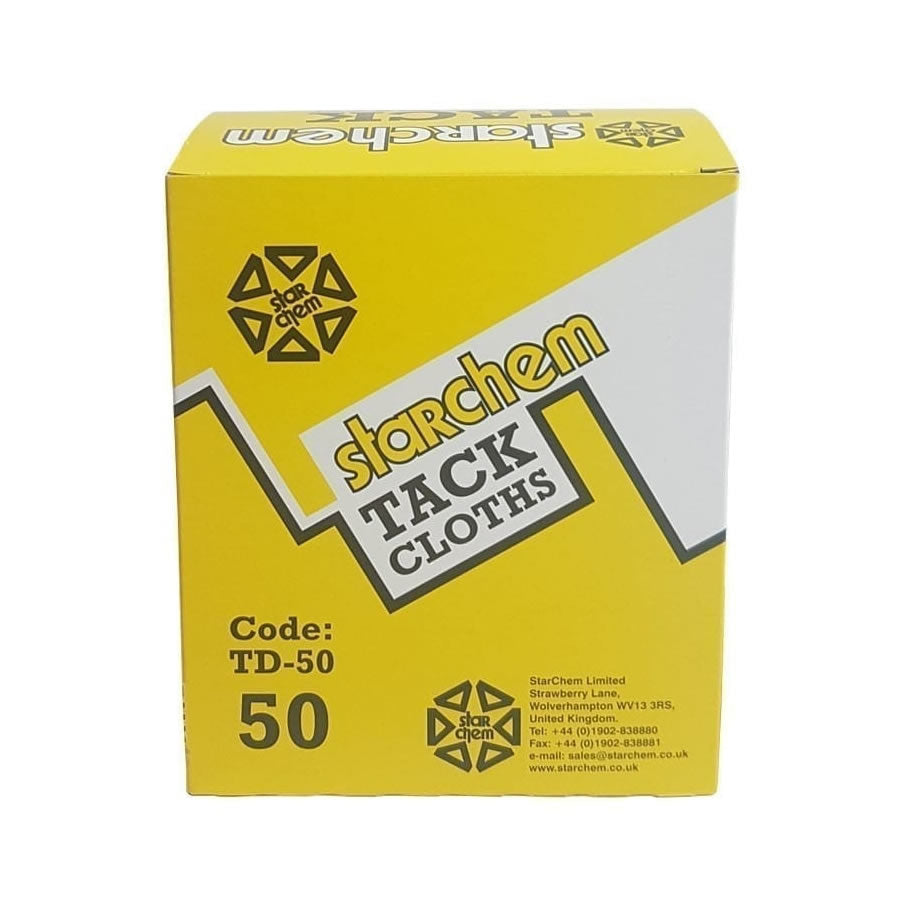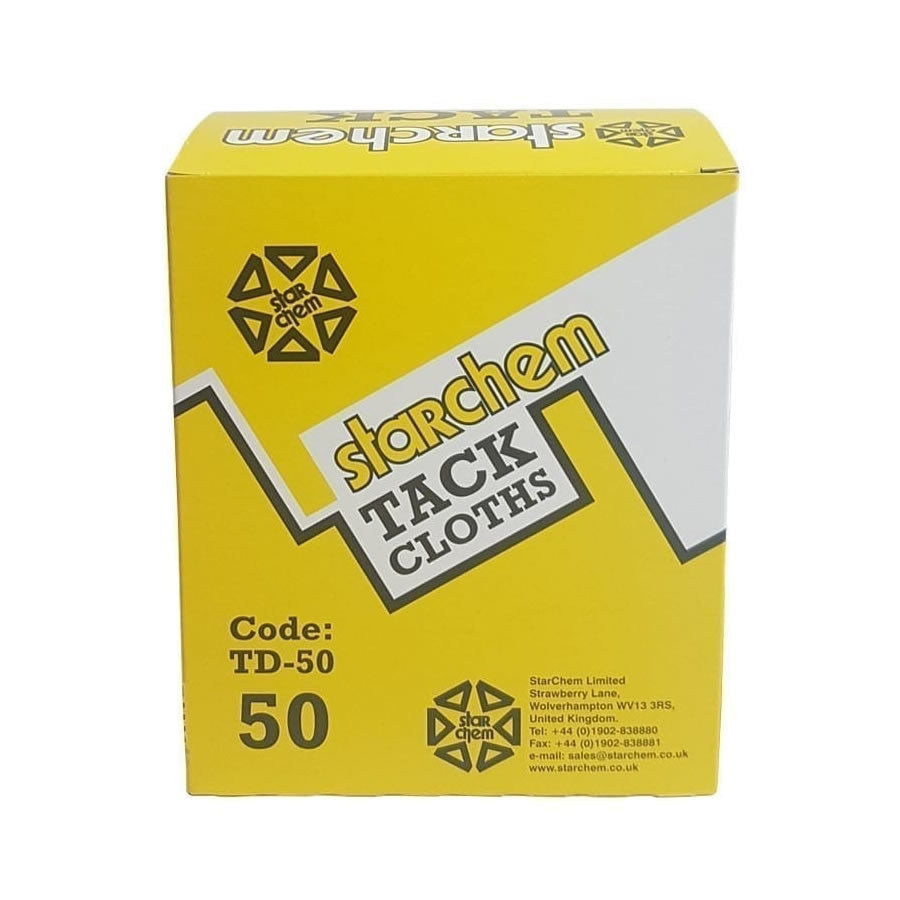Starchem
Starchem Tack Cloths In A Dispenser (50 Pack) TD-50
Starchem Tack Cloths In A Dispenser (50 Pack) TD-50
Couldn't load pickup availability
Starchem Tack Cloth Dispenser Box
Our best selling Tack Rag is available in a box of 50 wipes all individually packed to keep wipes fresh.
A tack cloth is a large sheet of loosely woven cheesecloth impregnated with beeswax.
Cheesecloth is any loosely woven fabric, much like medical-grade gauze.
The tack cloth sheet can be cut into smaller sizes.
Since beeswax is tacky, dust and other light particles cling to it.
A tack cloth is used until it is loaded with too much debris to be effective any longer, then it is discarded.
Using a tack cloth can be likened to wiping down a surface with a damp cloth, but without the harmful effects of water on your porous surface.
The loosely woven, gauzy fabric of the cheesecloth is impregnated with natural beeswax, which operates like a magnet for dust but does not penetrate the pores the way that water does.
Tack cloths are packaged as a sheets that are tightly sealed in plastic.
Professional painters and woodworkers use tack cloths to clean off surfaces like baseboards or trim before painting, staining, or top-coating with varnish.
After a light wipe-down with a tack cloth, the surface will be entirely smooth and dust-free.
A tack cloth is a one-use item, meaning it cannot be rinsed out and reused.
When it is full dust and particles, you must throw it away.
Tack cloths are not appropriate for every use.
Surfaces need to be relatively clean for the tack cloth to do its job of removing the finest of dust particles.
Soil in large quantities will just smear when rubbed with a tack cloth.
Tack cloths work well for removing the last remnants of dust, but they do clog quickly and should not be used as scrub cloths to perform the main cleaning chores.
Avoid or be careful when using a tack cloth for:
- Damp surfaces
- Glass
- Metal
- Ceramic or porcelain
- Rough areas
- Leather or cloth
Share


